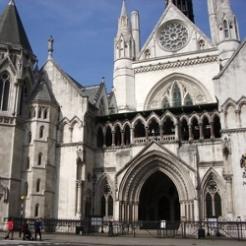The four charities who were involved in a legal dispute with a 95-year-old Alzheimer’s sufferer have been awarded £1.8m by the High Court.
The charities: Marie Curie, Action on Hearing Loss, RNIB and the Institute of Cancer Research issued a joint statement welcoming the verdict and saying they were grateful for the bequest which the High Court ruled they could equally keep.
The charities won the case against Alan Turner, son of Hazel Turner, who had been a lifelong friend of Dorothy Whelen, the woman whose estate was being contested.
The charities originally brought the case against the now 95-year-old Hazel Turner, who is currently suffering from Alzheimer’s, who they said fraudulently changed the will of her lifelong friend Dorothy Whelen in 1999 to favour herself.
The charities said that Whelen’s original will, made in 1982, left her £1.8m estate to four charities at the request of her husband who died in 1989 and she changed her will in favour of Turner in 1999. After Whelen’s death in 2012 the four charities stepped forward to lay claim to the legacy in line with the original, 1982 will and testament.
In his ruling, Judge John Behrens said the 1999 will which had left the money to Turner had been a home-made one drawn up in the absence of any legal representation and “should not be admitted to probate”.
The judge also ordered Alan Turner to put £50,000 towards the four charities' legal costs.
In a joint statement, the four charities said: "We respect the decision of the court and on behalf of everyone who benefits from our work; we would like to extend our gratitude for the bequest which has been left to our charities. We will carefully consider the judge’s comments.”
Rob Cope, director of Remember a Charity, said that this case highlighted the importance of the public regularly updating their wills alongside a qualified legal adviser.
“Home-made wills, such as the one in this case, too often lead to contested wills that fail to protect the wishes of the donor.”









